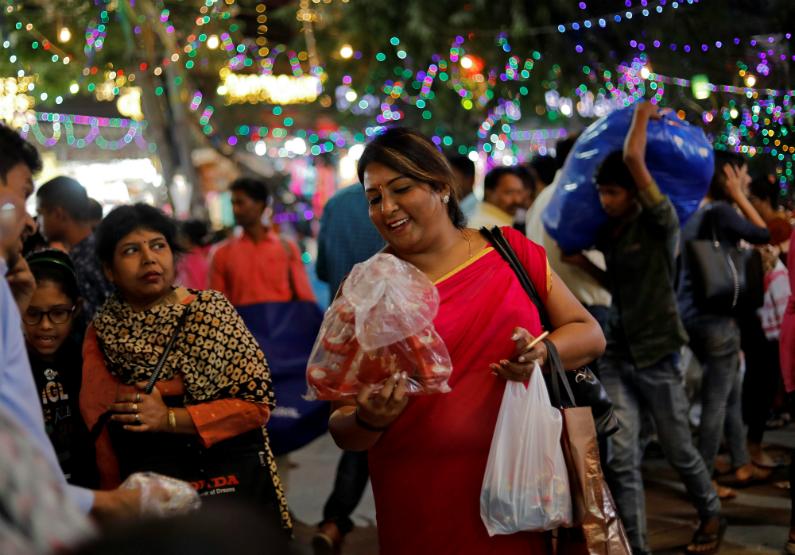NEW DELHI/BENGALURU—Higher prices, lending curbs and a move to online shopping are denting the cheer for Indian retailers at this year’s Diwali Hindu festival, with lackluster sales for high-end items ranging from iPhones to cars and even gold.
A weak rupee has pushed prices on Apple Inc.’s costly iPhones even higher in India, while surging fuel costs and a liquidity crunch in India’s shadow banking sector have taken a bite out of growth in carmakers’ sales during the country’s heaviest shopping weeks.





